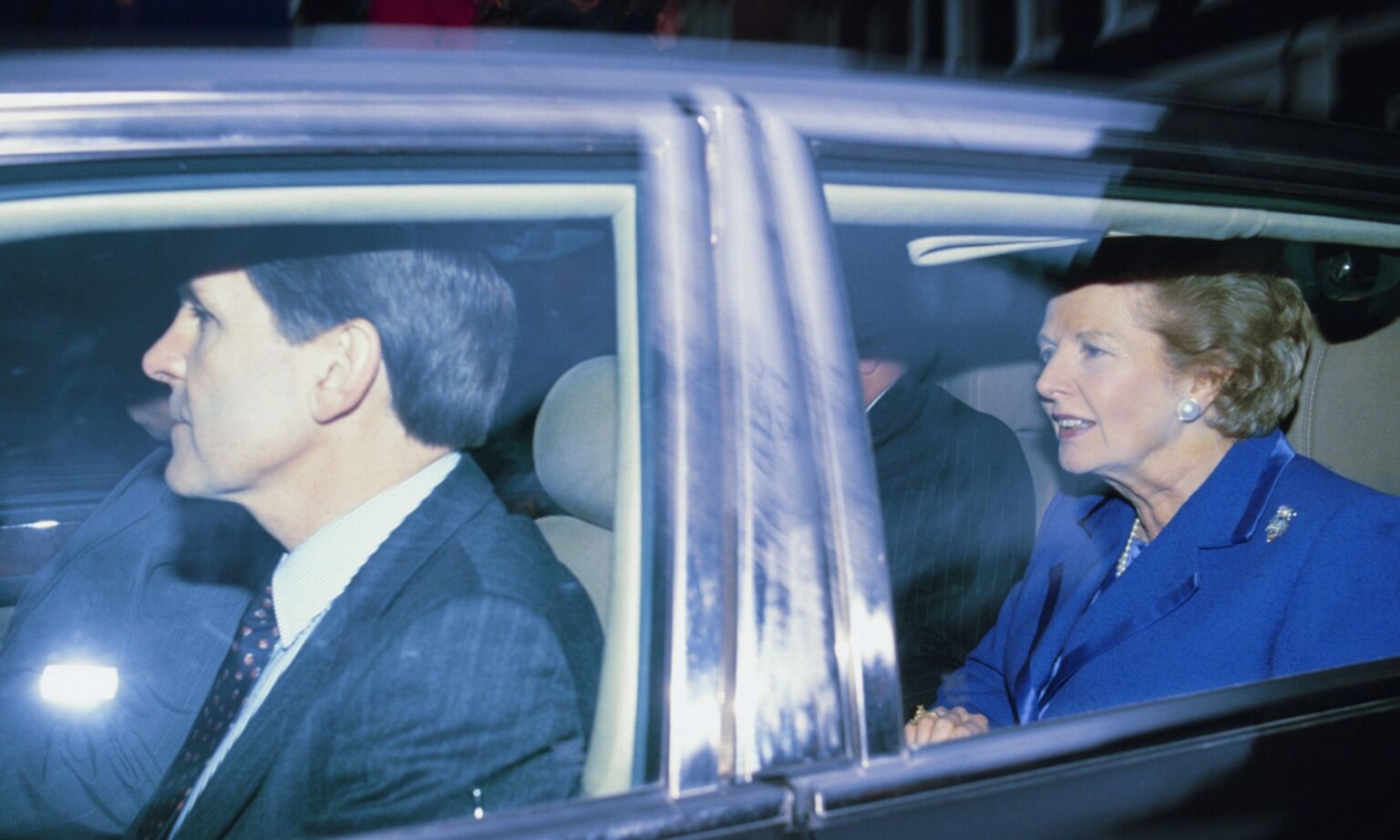
Long-read
The globalist coup against Margaret Thatcher
Thirty-five years ago, an emergent managerial elite embraced a post-national future.
Want unlimited, ad-free access? Become a spiked supporter.
It was an unremarkable evening in Bruges, Belgium, on 20 September 1988. The then British prime minister, Margaret Thatcher, was standing before the College of Europe. It was there that she delivered what would become the most consequential speech of her political life.
In earlier, more liberal, enlightened times, what she said would not have been deemed all that noteworthy. It was a defence of national sovereignty, a reminder that democratic authority rests with peoples, not bureaucracies. But this was late 1980s Britain. In the face of creeping supranationalism, with the state drifting steadily toward managerialism, technocracy and a new European orthodoxy, Thatcher’s speech was an act of open rebellion. A controlled detonation. A warning shot that hit at the heart of Whitehall’s pro-European project.
Thatcher didn’t merely question the momentum towards a federal Europe; she torched its intellectual foundations. She declared that Britain had not ‘rolled back the frontiers of the state in Britain, only to see them reimposed at a European level’. It landed like a thunderclap across the continent, but it was back in London where the real explosion happened. The civil service, the Foreign and Commonwealth Office (FCO) and a swelling faction of pro-European Tory ministers read the speech not as constructive dissent, but as insubordination. A prime minister stepping outside the establishment script.
Among her grassroots supporters and working-class converts, Thatcher’s Bruges speech was electrifying – a leader telling uncomfortable truths with characteristic clarity. But inside the machinery of the state, it was seen as unforgivable. From the moment the applause ended in that hall in Bruges, Thatcher’s days were numbered.
The reaction was subtle at first. There was a slight chill emanating from the Foreign Office, raised eyebrows in the Treasury and increasingly clipped advice from senior civil servants. But the meaning was unmistakable. After Bruges, officialdom no longer treated Thatcher as a political leader to be influenced. She became a problem to be solved, a structural threat to Britain’s presumed European destiny. The clock had started ticking on the plot to depose her.
Thirty-five years on from 22 November 1990, the day of Thatcher’s defenestration, it is impossible to understand her fall without seeing it for what it was: a civil servant-backed ministerial coup. It was conducted with impeccable manners and constitutional polish, but it was a coup nonetheless. Not a conspiracy in smoky rooms, but something more modern: an alignment of institutional preferences, procedural pressure and ministerial manoeuvring that relocated authority away from the democratically elected leader to the state nexus of the Treasury, Foreign Office, Cabinet Office and their favoured ministers.
Britain in the late 1980s was undergoing a cultural and administrative pivot. The old political vocabulary of sovereignty, nationhood and democratic accountability was being crowded out by a new managerial lexicon: ‘modernisation’, ‘inclusion’, ‘stakeholders’, ‘pooled decision-making’. This was not yet the full technocratic flowering of Blairism, but the tendencies were visible. The British state was becoming increasingly managerial in method and outlook, preferring consensus over conflict, consultation over conviction, institutional continuity over ideological rupture.
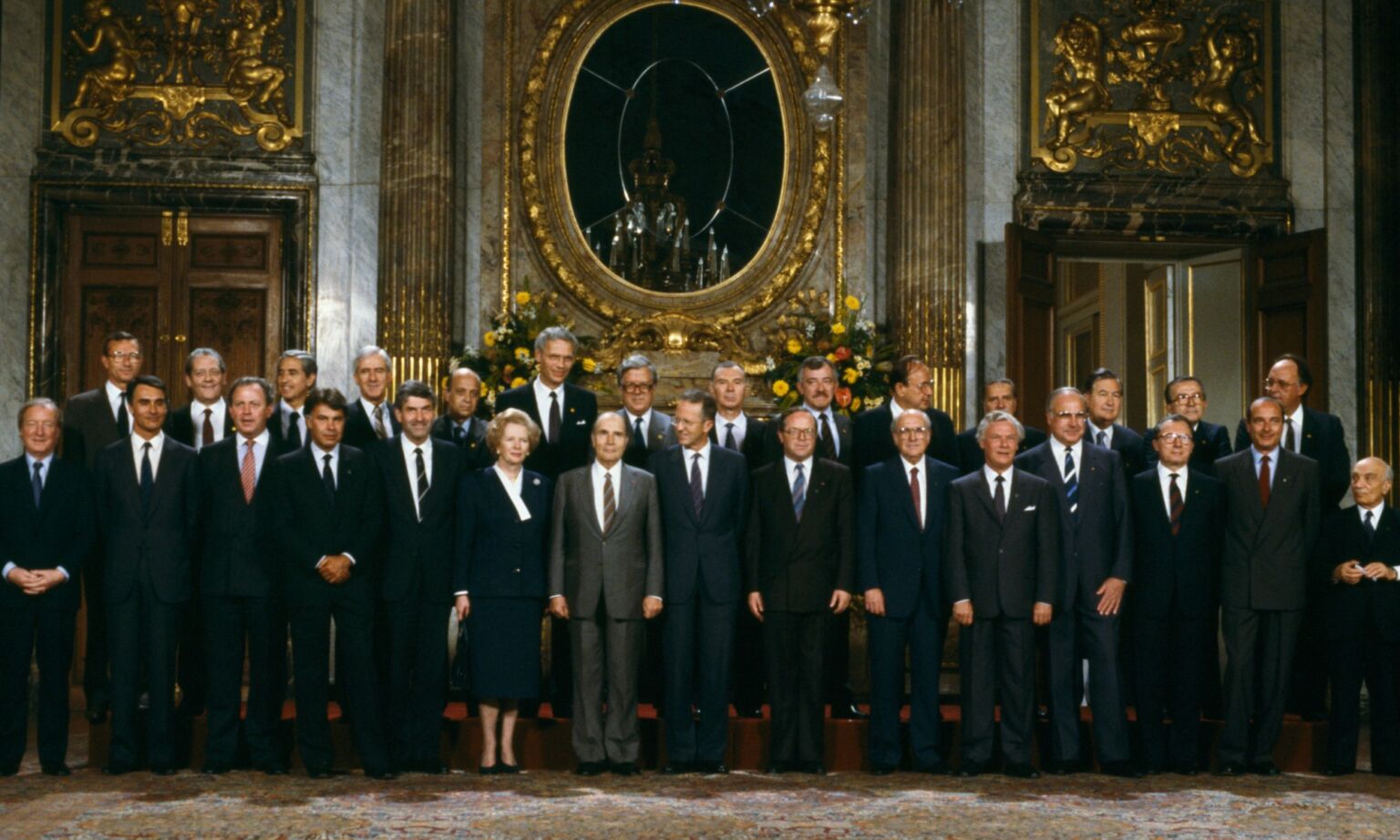
Thatcher, with her blunt clarity and belief in the democratic nation state, did not fit this world. And for the mandarins who preferred process over politics, she soon became an obstruction to be engineered out of the way. Her Bruges speech didn’t merely irritate, it also crystallised a fear in Whitehall that Thatcher might derail Britain’s transition to a post-national, Europeanised order. To Thatcher’s shock, then US president, George HW Bush, was of the same opinion. He too thought Britain should be part of a federalised Europe. Her fall, then, was not the product of political fatigue, a sign of the exhaustion of her administration. Rather, it was the decisive act in Britain’s shift from a sovereign nation state to a node in an emerging globalist system.
The evolution of the coup was neither sudden nor theatrical. It emerged through the slow rotation of the British state’s centre of gravity – a movement that left Downing Street increasingly isolated. By late 1990, the institutional mood in Westminster had been transformed. The FCO regarded Britain’s ‘European destiny’ as a settled question. The Treasury insisted the Exchange Rate Mechanism (ERM) – which was meant to pave the way for Britain’s adoption of what would become the euro – was beyond question. Cabinet committees began structuring their work around the assumption that Britain’s future lay inside the tightening architecture of what was then known as the European Community, an early iteration of the European Union. In this changing context, Thatcher’s sovereignty-first instincts had gone from inconvenient to intolerable.
Currency policy became the lever through which this shift was enforced. Britain’s decision to join the ERM on 5 October 1990, announced by chancellor John Major with foreign secretary Douglas Hurd beside him, was far more than an economic manoeuvre. It symbolised the state’s commitment to anchoring itself inside Europe’s emerging monetary and political framework. Major – calm, emollient and instinctively managerial – embodied the Treasury-FCO consensus. Hurd, a lifelong Europeanist, provided its diplomatic vocabulary. Behind them, senior Treasury mandarins and the Bank of England leadership ensured the policy line held firm. Inside the FCO, permanent under-secretary Sir Patrick Wright championed the integrationist view, treating Thatcher’s ‘No. No. No.’ to Brussels, as she put it in a 1990 Commons speech, not as a negotiating tactic but as a dangerous aberration.
Meanwhile, No10’s internal bulwarks against Europeanisation were crumbling. The resignation of Nigel Lawson in 1989, following his dispute with Thatcher’s economic adviser, Alan Walters, robbed Downing Street of a heavyweight economic ally. Lawson favoured joining the European monetary system, but was always keen on maintaining British sovereignty. He fell out with Walters, the PM’s staunchly Eurosceptic guru, over European integration and promptly resigned, only to be followed soon after by Walters himself. Brian Griffiths and Charles Powell fought to maintain Thatcher’s Eurosceptic spine, but their influence waned as Whitehall moved towards inclusive post-national managerialism.
Then came the detonation. Geoffrey Howe’s resignation on 1 November 1990 and his unforgettable Commons speech on 13 November. Together, these two events were the turning point for Thatcher. Delivered with Howe’s characteristic, almost tender cruelty, the speech amounted to a moral indictment of the prime minister. Britain could not function in Europe under a leader who viewed integration as a menace rather than a duty. ‘We commit a serious error if we think always in terms of “surrendering” sovereignty’, said Howe before, quoting Winston Churchill, he advocated for that ‘larger [European] sovereignty which can alone protect [European nations’] diverse and distinctive customs and characteristics and their national traditions’. Howe finished off by condemning Thatcher’s position: ‘If we detach ourselves completely, as a party or a nation, from the middle ground of Europe, the effects will be incalculable and very hard ever to correct.’
Howe’s intervention did what no civil-service briefing or Treasury memo could accomplish – it gave Tory MPs permission to abandon their leader. With Howe’s public disavowal of his ‘right honourable friend’, the internal dam burst.
The cabinet fractured along predictable lines. Douglas Hurd and Chris Patten formed the respectable face of the pro-European camp. Kenneth Clarke supplied the ideological confidence, treating integration as not merely beneficial but inevitable. On the opposing side stood John Redwood and Peter Lilley, the intellectual and economic sceptics; Norman Tebbit thundered from the backbenches; and a dwindling circle of loyalists stood firm in cabinet.
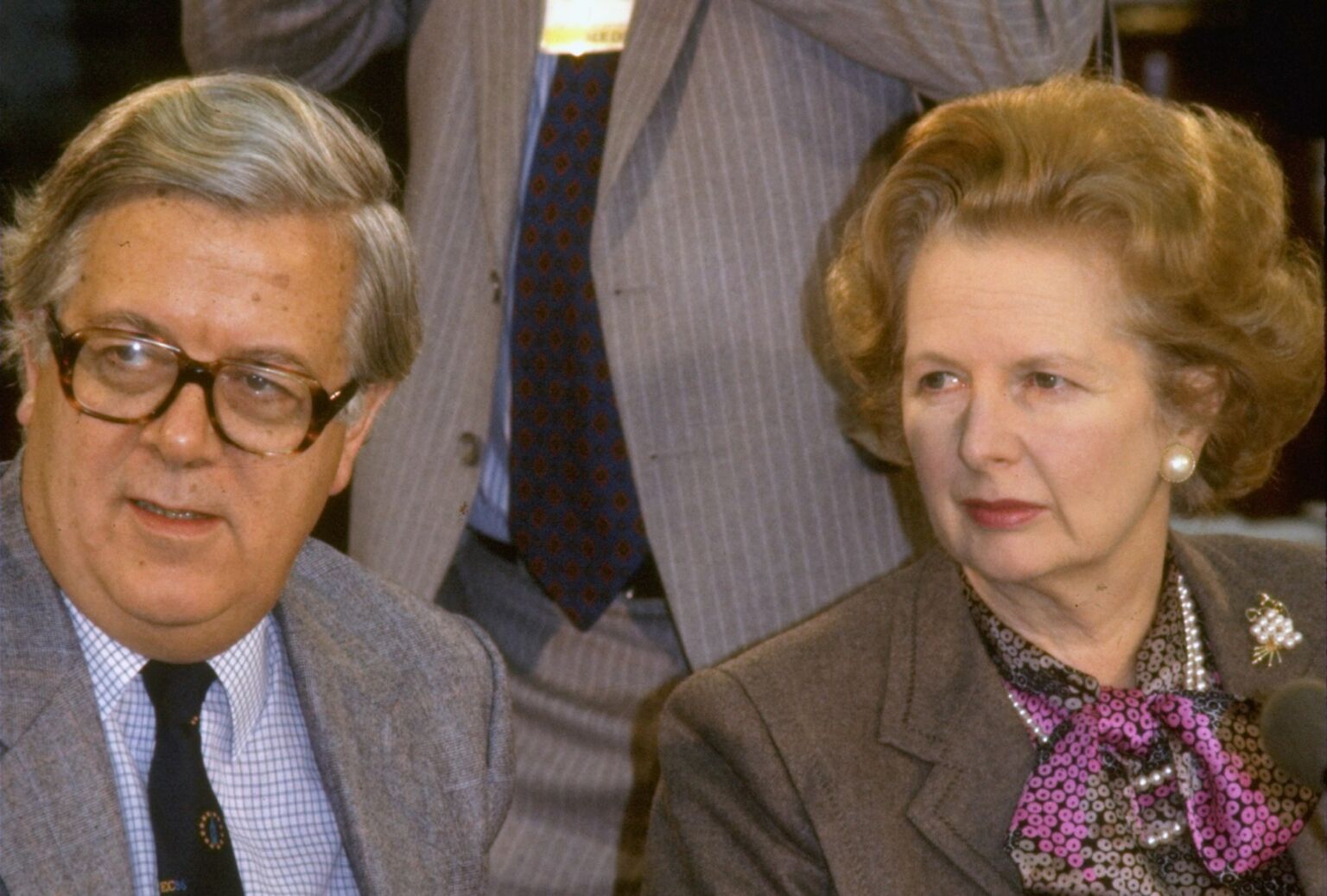
Yet the figure who mattered most was John Major, who had replaced Lawson as chancellor in 1989. His neutrality was strategic, his softness reassuring. He was Thatcherism with the ideological edges sanded off, soft Euroscepticism translated into ERM-compatible prose. He was, to Whitehall, the acceptable successor.
Throughout all this, the cabinet secretary, Sir Robin Butler, maintained immaculate propriety. There was no need for conspiracy when government procedure itself could be weaponised. The scheduling of cabinet business, the enforcement of collective responsibility, the framing of briefing papers – all subtly narrowed the range of viable positions. Thatcher was confronted not with explicit threats but with a potential reality constructed by process. She was told there was no alternative to a European future. She was told markets would turn, Britain’s partners would turn away and colleagues would revolt. She could bend or break, but she could not win.
When Michael Heseltine triggered his long-expected leadership challenge, the machinery was already moving. The first ballot on 20 November left Thatcher ahead but fatally short of the required margin. The parliamentary party – soothed by Hurdites, nudged by Clarke-ites, counted by whips, watched by anxious civil servants – chose compliance over confrontation. Thatcher canvassed her colleagues, found evasions where she needed loyalty, and understood the game was up. Two days later, on 22 November 1990, she resigned.
She was never defeated by the public or rejected by the electorate. She was removed by a civil-ministerial complex that had decided she no longer fitted the constitutional direction of the British state.
This was a coup – not because anything illegal occurred, but because the locus of authority shifted decisively away from democratic mandate and toward the institutional preferences of Whitehall. Europe was the instrument. Managerial globalism was the ideology. Thatcher’s insistence on democratic sovereignty became a malfunction the system moved swiftly to correct. And in that correction, the British state revealed a new mode of operation: insulated from voters, guided by supranational logic and increasingly contemptuous of democratic turbulence.
The consequences of that moment shaped Britain’s future for decades. Thatcher’s removal marked the point at which the British governing class fully embraced a ‘progressive’ sounding, managerial tone in its public language. It began speaking of ‘modernisation’, ‘inclusion’, ‘diversity’, ‘stakeholders’, ‘community’. These were not simply the buzzwords of a new public sector; they became the operational grammar of the state. The electorate, particularly the working-class majority which had backed Thatcher, was no longer seen as the sovereign public, but as a demographic risk to be managed. Anti-conservatism morphed into anti-majoritarianism. Thatcherism was recast as vulgarity – the politics of ‘barrow-boys’, ‘loadsamoney’ Britons and tabloid readers who were, in elite eyes, too nationalistic, too unfashionable, too unprogressive. (A familiar set of tropes now delivered against Reform UK.) The civil service was given free rein to shape public-policy announcements in politically correct tones.
And here lies the deeper irony: the Conservative Party did not merely succumb to these changes, it pioneered them. It was not David Cameron who reinvented the Tories for Labour’s ‘New Britain’. It was the pro-European wing under Major, Clarke, Hurd and Patten – the very faction that helped remove Thatcher – who first aligned the party with the managerial structures of globalist governance, then emerging in the 1990s. This is why the Conservative Party has since appeared to be a buffer against managerialism while also endorsing it; railing against the nanny state while implementing bans and restrictions. The right and the left – including parts of the far left – increasingly converged into a single establishment worldview. A new cross-party orthodoxy took shape, one united by a belief that the British electorate are not to be trusted. Both parties looked to govern through bureaucratic processes and legalism instead of democratic politics.
Thatcher’s ousting was not simply the end of an era. It was the moment the British governing class made a decisive choice. Confronted with a leader defending democratic sovereignty, it sided with the technocratic, European project. It sought to insulate itself from the public will. It chose a politics in which decisions were no longer made in the open, but choreographed behind closed doors by officials and ministers who believed they were preserving the interests of the state against the people.
In the end, Thatcher fell because she refused to adapt to the constitutional order then being constructed around her. She believed that nations, not bureaucracies, are the foundation of democracy. Her opponents believed that Britain’s salvation lay in supranationalism and managerial governance. When these worldviews collided, the machine quietly struck back.
This is why Thatcher’s fall still matters. It was not a personal tragedy or a routine change of leadership. It was the hinge on which modern Britain turned – the moment the democratic nation state gave way to the Europeanised, post-political order that followed. And it began, as these things often do, not with a riot or a scandal, but with a single speech in a small Belgian town, where Margaret Thatcher dared to say ‘No’, and discovered that the British state had already decided the answer would be ‘Yes’.
In 2016, Brexit was the electorate’s long-delayed revenge for the coup of 1990. It was the moment the British public finally seized back the political authority that had been quietly transferred to Whitehall, Brussels and the technocratic class in the decades after Thatcher’s removal. What the referendum revealed was not simply Euroscepticism, but a deeper opposition towards the managerial politics that had replaced democratic choice with expert oversight and unaccountable bureaucratic proceduralism. Voters treated Brexit as their chance to reopen a constitutional question the ruling elite had slammed shut in 1990 – the question of who rules? The Nation? Or the machine? In choosing to leave, millions of voters – many from the very working-class communities Thatcher herself had both mobilised and antagonised – delivered a thunderous repudiation of the Europe-first, public-last logic that had governed Britain since her fall. It was a reckoning delayed by a generation, but unmistakably aimed at the same elite that had once removed a leader for saying out loud what the public would later vote for overwhelmingly – that Britain should govern itself and that citizenship ultimately matters.
Neil Davenport is a writer based in London.
You’ve hit your monthly free article limit.
Support spiked and get unlimited access.
Support spiked and get unlimited access
spiked is funded by readers like you. Only 0.1% of regular readers currently support us. If just 1% did, we could grow our team and step up the fight for free speech and democracy.
Become a spiked supporter and enjoy unlimited, ad-free access, bonus content and exclusive events – while helping to keep independent journalism alive.
Monthly support makes the biggest difference. Thank you.

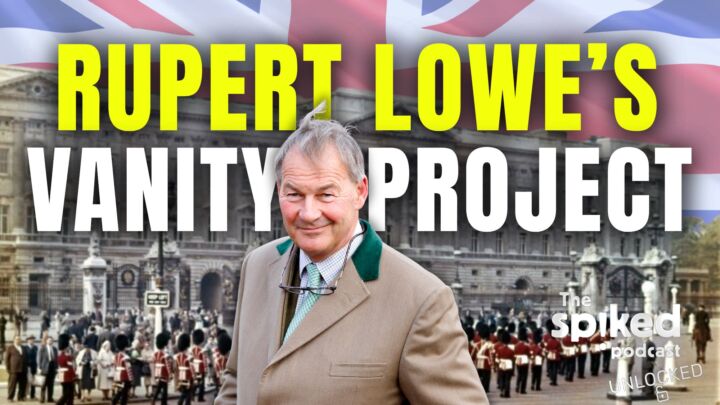
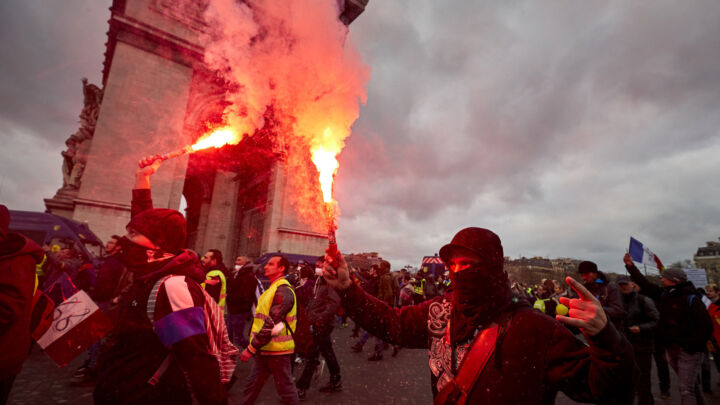
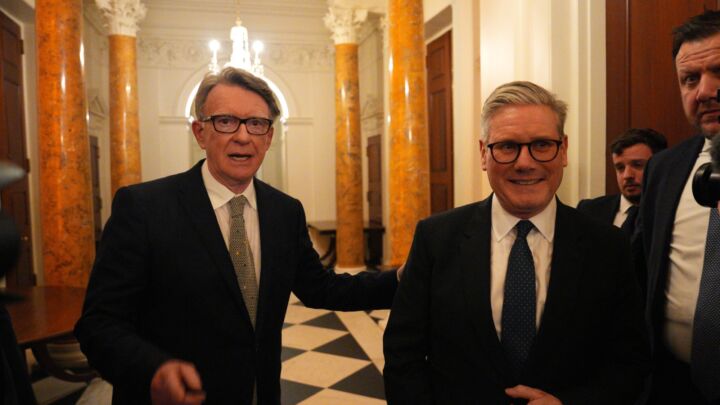



Comments
Want to join the conversation?
Only spiked supporters and patrons, who donate regularly to us, can comment on our articles.